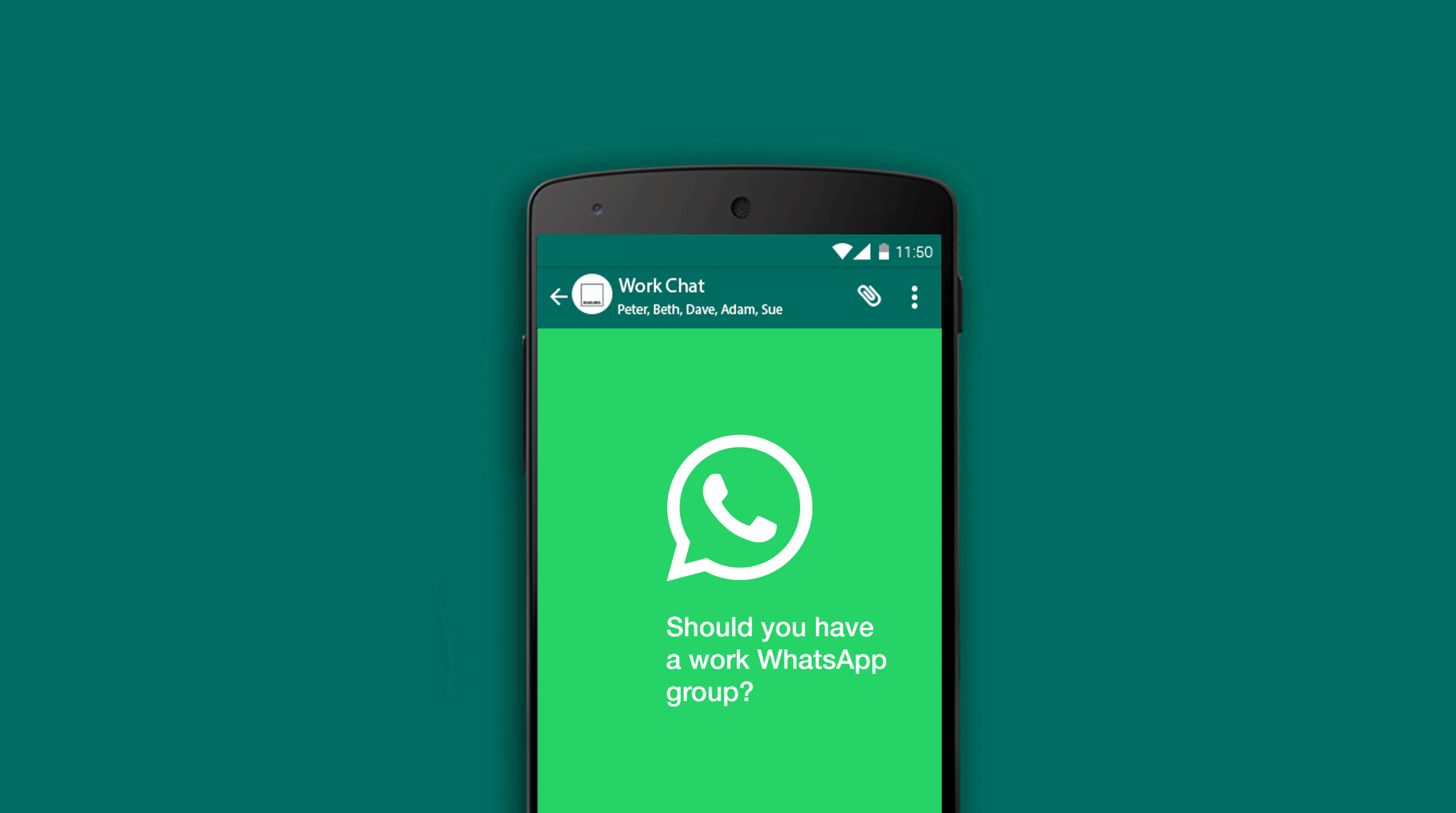Should you have a work WhatsApp group?
Sometimes it’s liberating to be able to talk to your colleagues outside the walled garden of work; sometimes it’s just easier. Whatever the reason, more and more of us are using messaging apps for work comms. But should we?
A new study has revealed that 53% of frontline workers are using messaging apps up to six times a day for work-related messaging. What’s surprising, 16% of HR teams don’t even know that their colleagues are doing it.
Now, is there really anything wrong with staff using their preferred comms channel to talk to each other about work? There’s a lot to be said about embracing the comms channel that colleagues are already using naturally.
But – as always – it’s not that simple. According to Patrick Van Der Mijl, co-founder of Speakap – who commissioned the research:
"Just because these tools are popular or preferred doesn't mean they are the right choice.
“There are three serious problems with using tools like WhatsApp and Facebook Messenger for employee communications – digital wellbeing, data security and regulatory compliance.”
The two most pertinent points here for Internal Communication (IC) professionals are data security and regulatory compliance.
Let’s take data security as a start. Now, you might think that WhatsApp (which is owned by Facebook) isn’t secure at all for work comms. That’s not completely true. In fact, all WhatsApp messages have end-to-end encryption. What does that mean? Well, it means that (theoretically) only the person you are messaging can read the content .. and no one else, including WhatsApp.
So the company can’t read your messages and isn’t listening to your calls – so, what is it accessing? Your address book for one. By using WhatsApp, you give Facebook all of your phone number contacts – something that could be a problem for data security.
Which leads us on to regulatory compliance. And, if you’re in the EU, GDPR.
Since the law came into effect last year, companies have been forced to take privacy and data collection very seriously. In fact, Deutsche Bank banned all SMS and messaging services on work-provided phones and the car-part supplier Continental followed suit, banning WhatsApp, Snapchat and other social media apps on work-supplied phones.
Could we reach a point where companies are banning these messaging tools outright? If so, it’s leaving huge space for business-approved messaging apps like Slack, Yammer, Workplace and the like. More often than not, adoption of these ‘personal’ messaging services arise out of a vacuum of work-provided services. Or, if your company is using a messaging service like Yammer, there could be a reluctance from employees to use the service openly and honestly for fear of their comms being monitored.
It seems that if you are using a work group WhatsApp, you could be (read: probably are) falling foul of GDPR.
So, should you have a WhatsApp work group?
It’s at this point that I’m going to chicken out. You need to answer this question yourself.
At Headlines, we will continue to run an Editorial-team WhatsApp group. It’s great for quickly sharing interesting stories, gifs, memes and letting everyone know if you’re stuck in traffic. But we’re a small team that doesn’t need a complex, dedicated IC comms channel to augment our emails.
Do you use a work group chat? Who’s in charge of it? Have you stopped using it since GDPR was introduced? Let us know in the comments … !
*DISCLAIMER 1*
We should mention that the study above was commissioned by Speakap, who are in the business of supplanting social messaging apps – so take the findings with a pinch of salt. But it does seem to speak to the wider trend that we’ve been noticing in the IC industry.
**DISCLAIMER 2**
I am not a lawyer; nor should this in anyway be interpreted as legal advice. I am a writer and communicator trying to make sense of the complex GDPR laws and the best ways to talk to each other.



